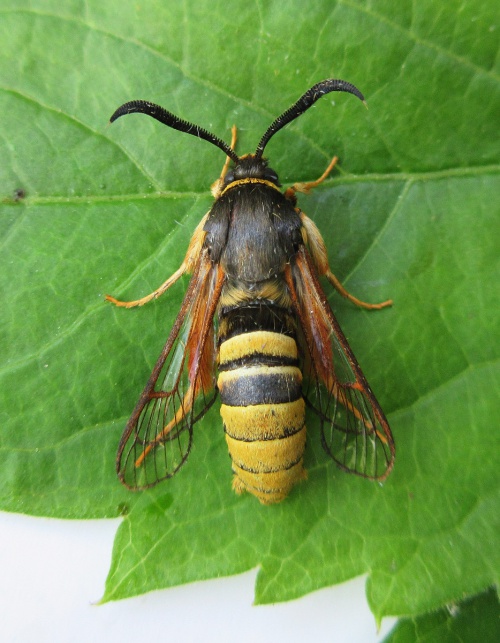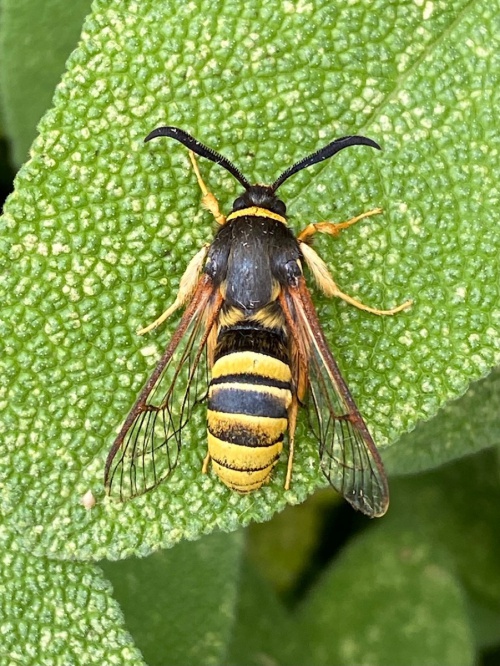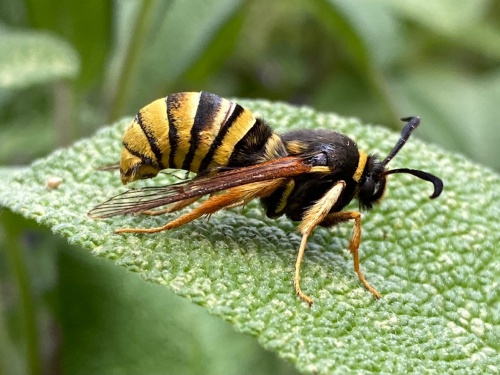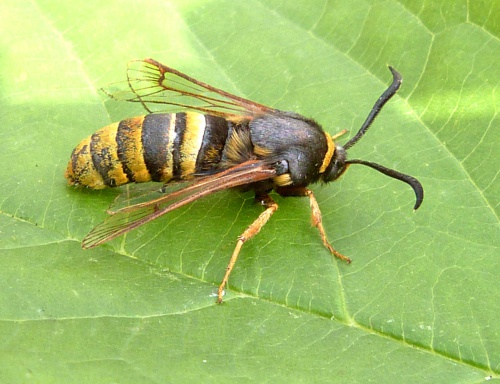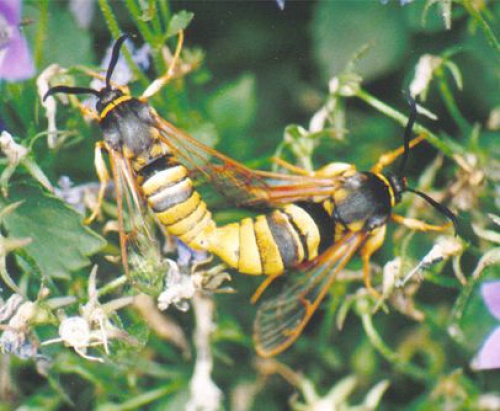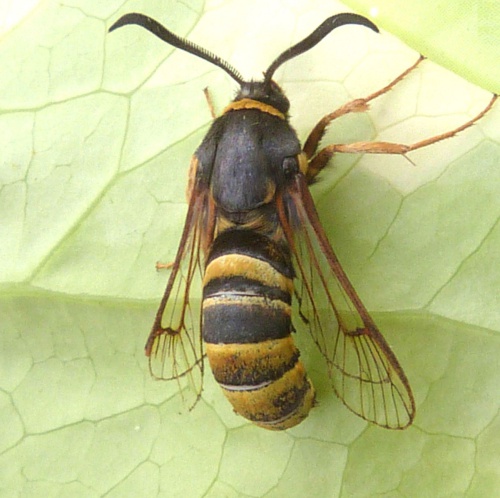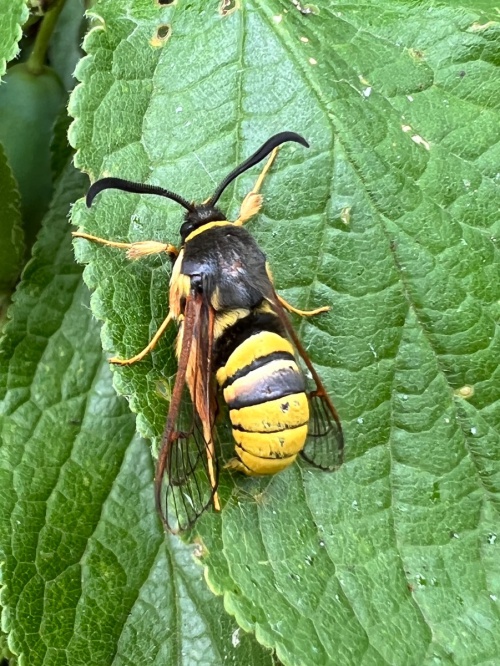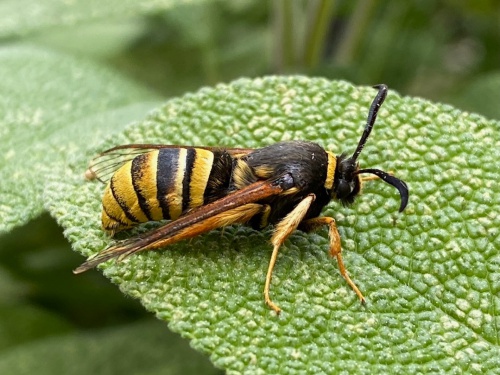Lunar Hornet Moth - Sesia bembeciformis
Wingspan 32 to 42 mm. One of several similar 'mimic' species, known as Clearwings, this is one of the largest.
Where willows are present.
Best looked for in July, as the adults emerge and rest low down on the trunks of various willows.
The eggs are laid on the bark, and the larvae burrow into the wood, feeding internally.
Widespread in Britain. In a recent survey to determine the status of all macro moths in Britain this species was classified as common.
Occasional in Leicestershire and Rutland. L&R Moth Group status = C (very scarce resident or rare migrant).
Leicestershire & Rutland Map
Enter a town or village to see local records
MAP KEY:
Yellow squares = NBN records (all known data)
Coloured circles = NatureSpot records: 2025+ | 2020-2024 | pre-2020
UK Map
Species profile
- Common names
- Lunar Hornet Moth
- Species group:
- Moths
- Kingdom:
- Animalia
- Order:
- Lepidoptera
- Family:
- Sesiidae
- Records on NatureSpot:
- 35
- First record:
- 25/06/2003 (Tony Diebel)
- Last record:
- 22/06/2025 (Andrews, Mark)
Total records by month
% of records within its species group
10km squares with records
The latest images and records displayed below include those awaiting verification checks so we cannot guarantee that every identification is correct. Once accepted, the record displays a green tick.
In the Latest Records section, click on the header to sort A-Z, and again to sort Z-A. Use the header boxes to filter the list.


